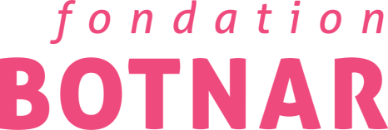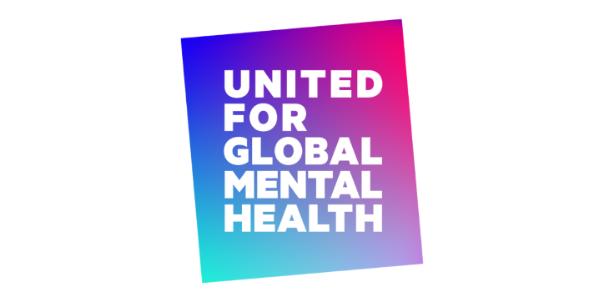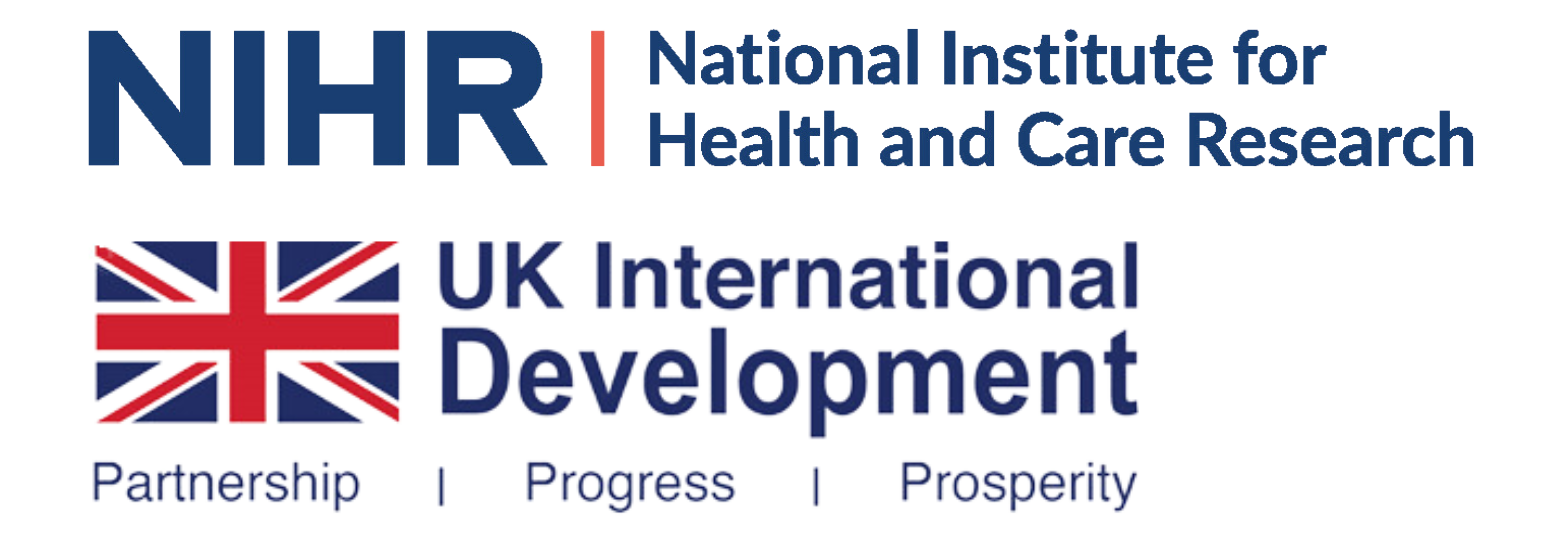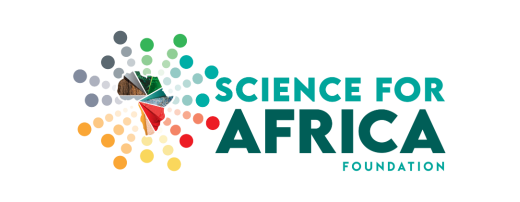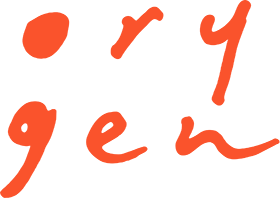By Nikhil Gowd, Knowledge, Management and Translation Analyst and Jigme Garwang, Knowledge, Management and Translation Associate at Grands Défis Canada
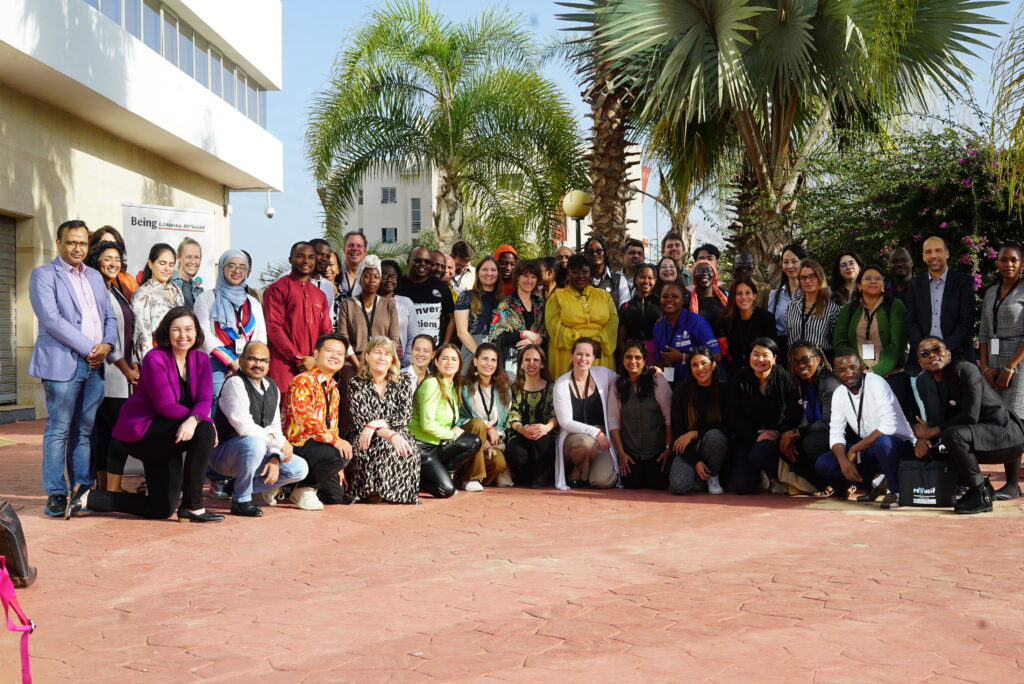
Innovation thrives not just through financial investment, but with the right support systems that help ideas grow into lasting solutions. The Being Learning and Support Network supports the development and impact of early-stage innovations (initiatives in the initial phases of development, testing their ideas, or showing early signs of health impact in youth mental health by providing technical support, capacity strengthening, and promoting the exchange of knowledge across the network and the broader global mental health community.
À l’initiative de Orygen Global, which has extensive organizational expertise in championing youth mental health through research, advocacy, and innovation, the Learning and Support Network offers a breadth of knowledge, lived experience, and subject-matter expertise. Through six regional support hubs across Latin America, Sub-Saharan Africa, South Asia, Southeast Asia, the Middle East, North Africa and Eastern Europe, the network assists in the capacity building of innovations (proof of concept and early-stage transition to scale).
Why localized support matters
The youth mental health sector is still evolving, and innovators entering this space need responsive, context-specific support. Tailored support in areas such as monitoring, evaluation, and learning (MEL), scaling strategies, and partnership development is essential to help them succeed and create lasting impact. The regional hub model ensures relevant, and impactful support by meeting early-stage innovators closer to where their interventions exist.
Each regional hub provides one-on-one advisory support and capacity-building workshops, while also promoting knowledge-sharing and facilitating networking and connections between innovations and the broader mental health community. Guidance is adapted to the needs of individual innovators by local experts who speak their language and have deep understanding of the context in which they work.
The hubs work closely with each innovation to develop a deep understanding of its context and goals, enabling the creation and implementation of relevant strategies and objectives such as an MEL (Monitoring, Evaluation, and Learning) plan. Meanwhile, the Orygen Global central team coordinates the regional hubs, provides logistical and administrative support, and facilitates knowledge sharing across the network.
What we’ve learned about our regional support hub model
Recognizing the diverse geographies and context-specific challenges across Being’s 12 priority countries, Orygen began providing localized support to innovators in December 2023. As part of a commitment to learning and growth, Grands Défis Canada (host of the Being Initiative) interviewed Being-funded innovators, regional hub team members, Orygen Global, and Grand Challenges Canada (GCC) staff to surface key learnings and reflections of the regional hub model to date.
What’s working well:
The regional hubs have achieved considerable successes in their work supporting early-stage innovators, who are in the initial phases of developing their ideas, testing innovations as Proof of Concept, or demonstrating early indications of health impact. Many of these innovators are youth-led, working with small teams and limited resources, and often require guidance on leadership, funding navigation, evidence generation and network access. They benefit from both one-on-one and group support from the regional hubs, including assistance with strategy development, monitoring and evaluation, scaling, and ensuring long-term sustainability. Four key themes emerged from our analysis:
Capacity-building:
Across geographies, most of the innovators we interviewed describe how the regional hub model has been important for their work and how it has expanded their capacity and strategies in monitoring, evaluation and learning activities, communications and storytelling, project management, networking, and partnership-building. While some of this capacity-strengthening delivery has occurred in region-wide or network-wide workshops, at other times it has been delivered in a one-on-one context. For example, for innovators in the Latin American (LATAM) hub, this support has been delivered in Spanish – by both the LATAM hub coordinator and local experts. In addition, Spanish translators have been employed to support LATAM innovators during network-wide workshops.This capacity-building support has helped innovators to better recognize knowledge gaps and given them the tools to better document their learning and progress.
Responsiveness:
Innovators say that having support in the same time zone, a consistent point of contact, and access to instant communication channels like WhatsApp groups are some of the key benefits of this model —making it easier to schedule meetings, receive timely responses to queries, and create a stronger feeling of community between innovators and the support teams in the regional hubs.
As Agha-Nwi, Founder of Sembe said, “We feel like our support person is only for us, because they are so attentive and responsive.”
Regional expertise and cultural context:
For innovators, the greatest benefit of the regional hub model has been its context-specific, culturally competent, accessible language, and relevant support.
“Innovators are happy to work with someone who speaks the same language, both literally and metaphorically,” said Catalina Popoviciu, Eastern Europe Regional Hub Lead. Regional expertise ensures that support providers have the contextual knowledge needed to navigate regulatory and governance issues unique to their areas. For example, some regional hub team members have first-hand experience implementing innovations in their own regions, allowing them to offer tailored, practical, and highly relevant insights. As Uttam Kumar, CEO at Sense International India, stated, “When you tell them (the regional hub) something, it does not surprise them because they know the issues very well.”
Building synergies:
All parties agree that having a central team like Orygen Global to shoulder the administrative and logistical responsibilities is a huge asset, giving regional support providers more time to work with innovators directly.
How can the Regional Hub model remain impactful?
Along with the exciting impact by the regional hub model, two key reflections emerged on how best to continue supporting early-stage innovators in an impactful and context-specific way:
1. Maintain flexible models for responsive support:
Innovators across the priority countries have diverse needs, and regional hubs often serve multiple innovators simultaneously. To remain adaptive and responsive, the Learning and Support Network constantly seeks out new ways to deliver high-quality and relevant support to early-stage innovators.
For example, in one region with several support providers, a hub has found that it’s useful to draw from each team’s relevant expertise, capacity, and knowledge. While this may be unique to and only possible for specific regions, this flexible “model within a model” is helpful to consider for moving forward. Furthermore, each hub does not have expertise in all topics. Moving forward, the hubs can drawn on their connections with researchers, academics, and practitioners to offer expanded and diverse support
2. Ongoing importance of connections:
To continue supporting early-stage innovators effectively, it is crucial to foster ongoing connections among regional hubs globally and innovators themselves.
Regional hubs benefit from being connected to one another, allowing for a free exchange of information, support, and expertise. These connections also allow hubs to be flexible and adaptive, a key benefit that’s greatly appreciated by innovators and partners alike.
Similarly, innovators benefit from being connected with their peers. Many innovators have emphasized that the relationships built through the Learning and Support Network have been an undeniable support given the limitless expertise held by youth-led innovators worldwide.


